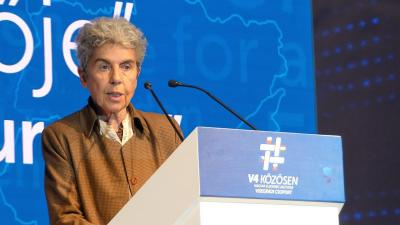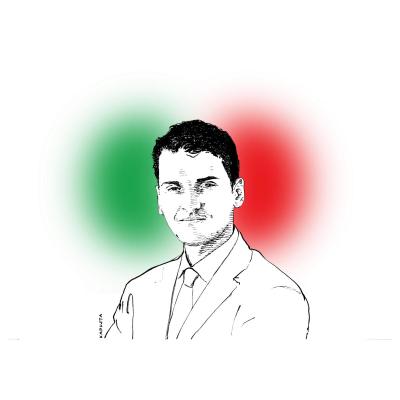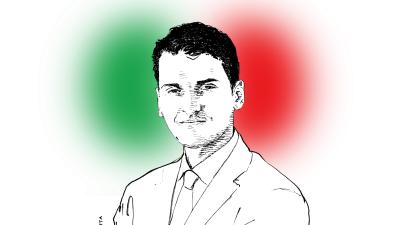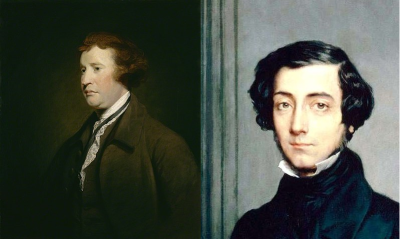Francesco Giubilei: How did France get to this point? What has gone wrong with the French model?
Chantal Delsol: France is a country of riots. And for specific reasons. It's a country where everything is centralised, where every decision has to come from the top, and where as a result, for centuries (long before the revolution, just read Tocqueville's L'Ancien Régime), citizens have been infantilised. A child expects everything from the parents (higher authorities), keeps demanding things from them, becoming indignant if it doesn't get enough, and rebelling against its benefactors if possible. For this reason, France is a country that goes from one rebellion to the next. This does not mean that nothing is serious and that it is enough to sleep while waiting for the next episode. The country is exhausted. The social fabric is breaking down. Public confidence is disappearing.
In one of your best-known works, "The End of Christianity and the Return of Paganism", you state that we are experiencing "a decline due to the exhaustion, barbarism and cancellation of cultures". To what extent does this loss of identity affect today's demonstrations?
Every uprising has its own motives, linked to the events of the day. The revolt of May 68 was a challenge to the old parental authority, judged to be too severe, and to the old mores still dominated by the authority of the Church. Today, it seems to me that the revolt stems from two overlapping realities. Firstly, the upheaval of the family, which no longer knows how to educate children to be free - because that requires a great deal of presence and effort on the part of both parents. And this is much more than tenderness, which is instinctive, so to speak. Then there is massive immigration, with many immigrants no longer interested in integrating into French culture. Finally, this is Muslim immigration – which changes everything. Why? Because Muslim families don't educate their children to be free. They don't have this tradition, as they worship an authoritarian God and are ruled by authoritarian regimes. It's in democracies that children need to be educated in freedom to become citizens. So the disastrous state of the family and the size of Muslim population combine to produce violent, rebellious children.
Is there a link between the demonstrations and radical Islam, as some commentators have written? Or does religion have nothing to do with it?
In my opinion, what religion has to do with these events stems from its educational tradition only. So let me clarify what I said earlier on this subject. In Western countries, we were only able to create democracies because we had a God who confers freedom which, logically, supports an education in freedom given in families. In other words, children are taught autonomy, so they can become citizens. It's no coincidence that democracy was born in monogamous countries: it's very difficult to teach a child freedom in a system based on polygamy (Islam) or community (ancient Africa). There are authoritarian regimes everywhere in Muslim countries, which correspond to an authoritarian God and polygamous systems. Muslim education, which is designed for authoritarian regimes, does not correspond to French society, which, being a democracy, demands children who "prevent themselves" (as Camus would say).
Can we say that the demonstrations in France bear witness to the failure of multiculturalism?
Yes, you could say that... But I don't even know if we can talk about failure where there was no desire or attempt. France is not a country made for multiculturalism, and doesn't want it. It was always the last to refuse the Muslim veil in schools, for example. It wants a single model, and for it the "republican" model is practically an ideology. The problem is that, at the same time, the country makes no effort to integrate immigrant populations. It's a contradiction bound to provoke an explosion.
You were one of the signatories of the Paris Declaration "A Europe to Believe In" drawn up in 2017. What is the relevance of this document? To what extent was it a harbinger of what happened later?
I don't think this document has had any impact. There are a few of us who keep repeating that the European institution should accept its history instead of claiming to be only rooted in the future - as if it were possible to be rooted in the future! Unfortunately, in these circumstances, it is only through disasters that we can be prescient, because it is these that show the extent to which the European project has got its ideology wrong. The war in Ukraine is a case in point. For fifty years we have been lulled by the nonsense of "democracy as the end of history" (Fukuyama, repeated everywhere), or "turn the enemy into your neighbour, no more war" (Beck), and so on. The war in Ukraine is a brutal reminder of the reality of the world. Another phenomenon is the proliferation of national-conservative democracies in Europe - Hungary, Poland, Italy, Sweden, etc. - which clearly demonstrate a desire to put down roots and become incarnate, and a rejection of a disembodied, utopian Europe.
How can the millions of immigrants and children of immigrants from the new generation coexist peacefully with the French?
First of all, they can coexist perfectly well if they are both subject to the same laws. It's not uncommon for young Muslims in secondary schools to define the curriculum studied in class according to the requirements of their religion. Coexistence is becoming difficult with the latest generations of Muslim immigrants. The first generations wanted to integrate into France and did everything they could to do so. Now we have generations who hate France and are not at all interested in integrating, but, on the contrary, in destroying the country and then taking over. Why this change? And why is this only true for Arab-Muslims, and never for Asians, who adapt perfectly and blend into the country without ever posing a problem? A multitude of cultural and historical factors come into play.
Is there any hope for the future of France? Or do you think we've reached a point of no return?
I think we're in a very bad position, because a section of the French population is no longer going to accept laissez faire, and it's not impossible that the next time it will be ordinary citizens who take up their pitchforks against the rioters (there have already been two cases of this type in recent days). This would be the beginning of a civil war... Nor is it impossible that next time the voters will call for a much more authoritarian regime. Democracy is debonair, but it cannot allow everything.
Read also
The problem of mass immigration to Europe - a critical analysis
The growing migratory pressure at Europe's borders has shown clearly that, despite the already obvious problems involved, the migratory inflow is not being tackled with the necessary determination by the EU institutions. Yet irregular immigration is a problem that does not concern a single country but the whole of Europe.
Francesco Giubilei
Conservatives and Classical Liberals - What to Choose?
In a political and cultural context as changeable as the contemporary one, any use of rigid categories to define parties and alignments or thinkers and men of culture can be misleading.
Francesco Giubilei
The Right and the Organisation of Culture
The Sardinian thinker concentrates on the process of the formation of intellectuals in a civil and political society. After specifying the role of Italian intellectuals abroad and their cosmopolitan function, he dwells on the organisation of culture and related issues.
Francesco Giubilei
The centre-right wins in Lazio and Lombardy and strengthens the government
On 12-13 February 2023, votes were cast in Lombardy and Lazio, two of the main Italian regions where the cities of Milan and Rome are located. Lombardy is one of Europe's most important economic regions with 10 million inhabitants and a gross domestic product higher than many European states.












Comments (0)